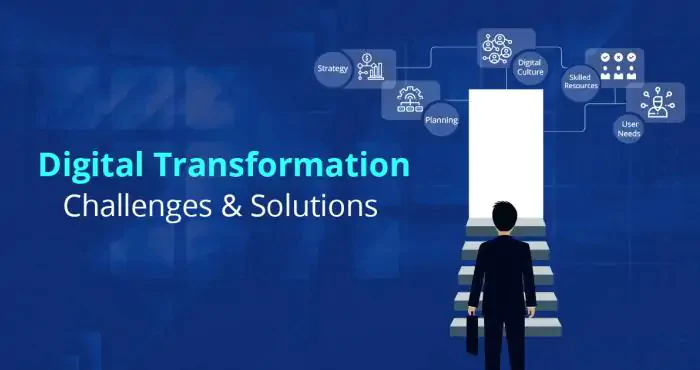In today’s rapidly evolving digital transformation, executive assistants (EAs) play a crucial role in supporting their superiors and driving organizational success. As technology continues to reshape the workplace, executive assistants (EAs) must adapt and embrace digital transformation to remain effective and valuable assets to their teams.
Over the last 14 years, my role as an Executive Assistant has demanded continuous adaptation and growth. Core to my responsibilities is staying organized, managing tasks seamlessly, and ensuring effective communication. As an Executive Assistant, embracing digital transformation, including AI, is imperative. It’s not merely a choice but an essential adaptation to a digital age where technology isn’t a hypothetical future; it’s our present reality.
The digital landscape has transformed the role of executive assistants, providing them with a plethora of resources to enhance their efficiency and effectiveness. From robust scheduling platforms like Calendly to collaboration tools like Microsoft Teams, Executive Assistants now have a wealth of options to manage their tasks, communicate effectively, and collaborate seamlessly with their teams.
This article helps Executive Assistants navigate digital transformation-improving skills and driving organizational success.
1. Cultivate a Growth Mindset
The foundation of embracing digital transformation lies in adopting a growth mindset. This means approaching new technologies and challenges with a willingness to learn, experiment, and continuously improve. Executive Assistants should actively seek out opportunities to enhance their digital literacy and proficiency in relevant tools and platforms.
2. Identify and Leverage Digital Tools
Technology offers a plethora of tools and platforms that can streamline and enhance an Executive Assistants workflow. Explore and adopt productivity apps, scheduling tools, communication platforms, and project management software to organize tasks, manage calendars, collaborate effectively, and automate repetitive processes.
3. Enhance Data Management Skills
Data is the lifeblood of modern organizations, and Executive Assistants must be adept at managing and analyzing data to provide insights and support decision-making. Develop proficiency in data management tools, such as spreadsheets and databases, to organize, analyze, and present data effectively.
4. Master social media and Online Presence
Social media has become an indispensable tool for communication, networking, and brand building. EAs should develop expertise in managing their superior’s social media presence, including curating content, engaging with followers, and maintaining a positive online reputation.
5. Embrace Artificial Intelligence (AI) and Automation
AI is revolutionizing the workplace, and EAs should understand and leverage AI-powered tools to automate tasks, improve efficiency, and enhance productivity. Explore AI-powered virtual assistants, scheduling tools, and data analytics platforms to streamline workflows and focus on higher-value activities.
6. Stay Updated with Emerging Technologies
The digital landscape is constantly evolving, and it’s crucial for EAs to stay abreast of emerging technologies and trends. Regularly attend webinars, read industry publications, and participate in online forums to stay informed and identify opportunities to leverage new technologies.
7. Upskill and Reskill Continuously
Digital transformation requires continuous learning and skill development. Executive Assistants should actively seek out training opportunities, such as online courses, workshops, and certifications, to enhance their digital skills and remain relevant in the ever-changing workplace.
8. Collaborate with IT and Technology Teams
Effective digital transformation requires collaboration and partnership.Executive Assistants should actively work with IT and technology teams to understand the organization’s digital strategy, identify areas for improvement, and implement new technologies effectively.
9. Champion Digital Transformation within the Organization
Executive Assistants can play a pivotal role in promoting digital transformation within their organizations. Share their knowledge and expertise with colleagues, encourage the adoption of new technologies, and lead by example in embracing digital practices.
10. Measure and Evaluate Impact
As an Executive Assistants Regularly evaluate the impact of digital transformation initiatives to assess their effectiveness and identify areas for improvement. Track metrics such as productivity gains, efficiency improvements, and cost savings to demonstrate the value of digital adoption.
Overcoming challenges while getting used to new Digital Technology.

The digital transformation journey for executive assistants is often accompanied by hurdles, but these challenges can be effectively navigated to success with the right approach. I encountered these obstacles as an EA, but I managed to overcome them through these strategies:
- Resisting change: Adapting to new technologies can be daunting, but embracing change is crucial for EAs to remain relevant and valuable. I overcame this challenge by adopting a growth mindset, seeking out opportunities to learn new skills, and actively participating in training and workshops.
- Fear of the unknown: Venturing into unfamiliar territory can be intimidating, but technology offers a wealth of possibilities for EAs. I overcame this fear by researching new tools, attending webinars, and networking with other EAs who had successfully adopted technology.
- Time constraints: Integrating new technologies into an already hectic schedule can be challenging, but efficiency is key for EAs. I overcame this challenge by prioritizing tasks, leveraging automation tools, and delegating responsibilities whenever possible.
- Security concerns: Protecting sensitive data is paramount for EAs, and technology can pose security risks. I overcame this challenge by staying informed about cybersecurity threats, implementing strong password policies, and using secure cloud storage solutions.
Five Essential Components of Digital Transformation every Executive Assistants should know:
Digital transformation is not just a buzzword, it’s the new reality of business. In today’s rapidly evolving landscape, organizations must adapt to stay competitive. But where do you start? Here are five essential components to guide your digital transformation journey as an Executive Assistants:
1. People
It all starts with your people. They are the driving force behind any successful transformation. Invest in training and development programs to equip your workforce with the skills they need to thrive in the digital age. Encourage collaboration and create a culture of innovation.
2. Data
Data is the lifeblood of digital transformation. It provides valuable insights into your customers, operations, and competitors. Develop a data-driven culture and make data accessible to all levels of your organization. Use data to inform your decisions and measure the success of your efforts.
3. Technology
Technology is the enabler of digital transformation. Invest in the right tools and technologies to support your goals. This may include cloud computing, artificial intelligence, and automation tools. Use technology to streamline your operations, improve customer experiences, and create new opportunities.
4. Insights
Data is only valuable if you can turn it into actionable insights. Invest in analytics tools and expertise to help you make sense of your data. Identify trends, patterns, and opportunities to improve your business. Use insights to make data-driven decisions and measure the impact of your initiatives.
5 Action
Digital transformation is not a one-time event, it’s an ongoing process. Develop a roadmap for change and create a culture of continuous improvement. Monitor your progress and make adjustments as needed. Celebrate your successes and learn from your failures.
Conclusion:
Digital transformation presents both challenges and opportunities for executive assistants. By embracing a growth mindset, leveraging digital tools, enhancing data management skills, mastering social media, embracing AI and automation, staying updated with emerging technologies, upskilling and reskilling continuously, collaborating with IT teams, championing digital transformation within the organization, and measuring and evaluating impact, EAs can position themselves as indispensable assets in the digital era, driving organizational success and enhancing their own career prospects.


Rebecca Sellers
Emmalyn Shannon
Charli Conrad
kashay lintern
Thanks for sharing. I read many of your blog posts, cool, your blog is very good.
Can you be more specific about the content of your article? After reading it, I still have some doubts. Hope you can help me.
I don’t think the title of your article matches the content lol. Just kidding, mainly because I had some doubts after reading the article.
Can you be more specific about the content of your article? After reading it, I still have some doubts. Hope you can help me.
Thanks for sharing. I read many of your blog posts, cool, your blog is very good.
Normally I do not read article on blogs however I would like to say that this writeup very forced me to try and do so Your writing style has been amazed me Thanks quite great post
Hi Neat post Theres an issue together with your web site in internet explorer may test this IE still is the marketplace chief and a good component of people will pass over your fantastic writing due to this problem
Hey there You have done a fantastic job I will certainly digg it and personally recommend to my friends Im confident theyll be benefited from this site.
Thank you for your sharing. I am worried that I lack creative ideas. It is your article that makes me full of hope. Thank you. But, I have a question, can you help me?
Mygreat learning Good post! We will be linking to this particularly great post on our site. Keep up the great writing
Hello, Neat post. There’s an issue along with your website in web explorer, might check this?K IE still is the marketplace leader and a large element of other folks will pass over your fantastic writing due to this problem.
allegheny county real estate I truly appreciate your technique of writing a blog. I added it to my bookmark site list and will
Hey there You have done a fantastic job I will certainly digg it and personally recommend to my friends Im confident theyll be benefited from this site
Hi Neat post There is a problem along with your website in internet explorer would test this IE still is the market chief and a good section of other folks will pass over your magnificent writing due to this problem
Pink Withney This is my first time pay a quick visit at here and i am really happy to read everthing at one place
With havin so much content do you ever run into any issues of plagorism or copyright infringement?
My blog has a lot of unique content I’ve either created myself
or outsourced but it appears a lot of it is popping it up all over the internet without
my permission. Do you know any solutions to help protect against content
from being ripped off? I’d truly appreciate it.